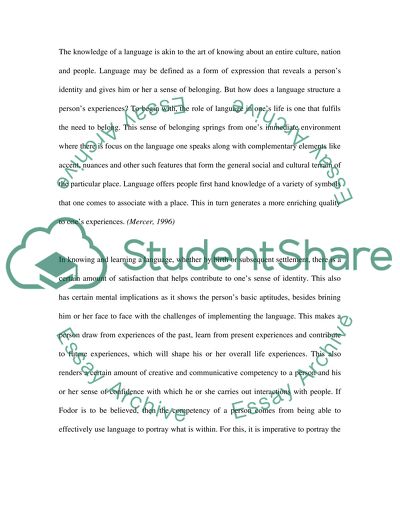Cite this document
(“Language of Thought and Fodor Essay Example | Topics and Well Written Essays - 2500 words”, n.d.)
Language of Thought and Fodor Essay Example | Topics and Well Written Essays - 2500 words. Retrieved from https://studentshare.org/miscellaneous/1519872-language-of-thought-and-fodor
Language of Thought and Fodor Essay Example | Topics and Well Written Essays - 2500 words. Retrieved from https://studentshare.org/miscellaneous/1519872-language-of-thought-and-fodor
(Language of Thought and Fodor Essay Example | Topics and Well Written Essays - 2500 Words)
Language of Thought and Fodor Essay Example | Topics and Well Written Essays - 2500 Words. https://studentshare.org/miscellaneous/1519872-language-of-thought-and-fodor.
Language of Thought and Fodor Essay Example | Topics and Well Written Essays - 2500 Words. https://studentshare.org/miscellaneous/1519872-language-of-thought-and-fodor.
“Language of Thought and Fodor Essay Example | Topics and Well Written Essays - 2500 Words”, n.d. https://studentshare.org/miscellaneous/1519872-language-of-thought-and-fodor.


